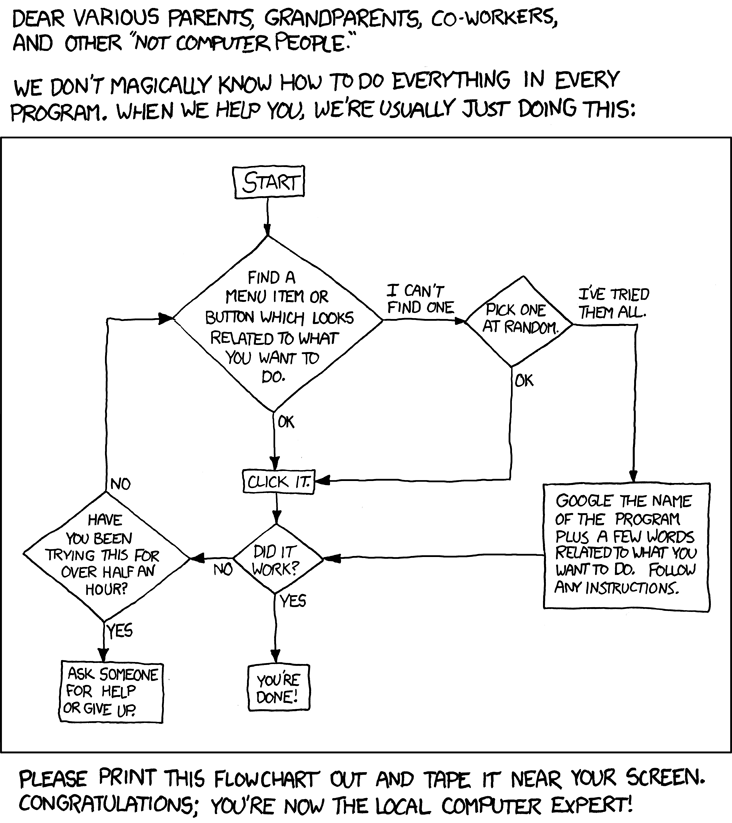What is different about ‘computer people’? Most of the working population of this country either use computers every day, or used them at school, so why are people still afraid of them?
As Arthur C Clarke put it, “advanced technology is indistinguishable from magic”, and a surprisingly high number of people just ‘don’t understand computers’. Or at least that’s what they tell themselves.
They’re afraid that they might break something. When I was very young, my dad went to his friend’s house, and took me with him. While they talked, I was left in front of the TV. It was the first time I’d ever seen a remote control. I picked it up, and pressed a button. The channel changed. Pretty cool, I thought. I pressed a few more buttons. The screen filled with static. I didn’t know what to do.
I kept quiet, not wanting to admit that I had broken this expensive piece of equipment. After a while, my dad and his friend came back. The friend picked up the remote, pressed a button, and brought the TV back to life. Problem solved.
Most of the time, you’re not going to irreparably break something, unless you’re doing something pretty outlandish, or unless it was badly built in the first place.
Computers are even better than that, because most of the time there’s an undo button.
Some people have curiosity, others don’t. I used to share a house with someone who knew the route from our house to the train station, and the route to the supermarket. She had never been down any of the other streets in the area. She was ploughing a furrow, refusing to venture outside her comfort zone. She just wasn’t interested in what might be there. This was inconcievable to me - I would always explore the alternative routes, just in case there was something interesting there.
Maybe that’s what defines a ‘computer person’, or a geek, or whatever you want to call them. (I should probably say ‘us’ here, but I don’t want that stigma…) They (we) are curious about the world, and want to know what happens if you press that button or pull that lever. When they get in a lift, they notice the other controls that aren’t the floor buttons, and wonder what they do.
This is important to remember in user interface design. Some geeks will want the extra levers and buttons, but most people don’t notice things, and they just want to go from A to B as quickly and painlessly as possible. The job of an interface is to enable that. This is different from treating users as idiots, patronising them with enormous buttons that look like my first computer screen. It’s about thinking about where A and B are, and making the route between them logical and obvious. And remembering that what seems logical to some people is baffling to others.
